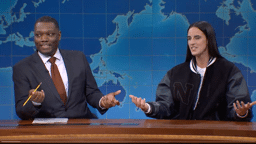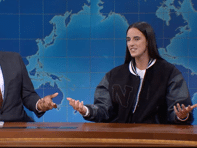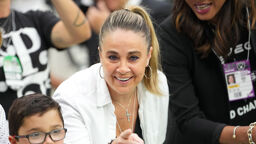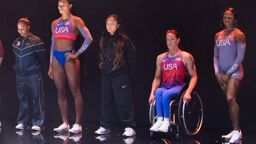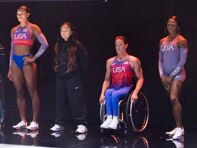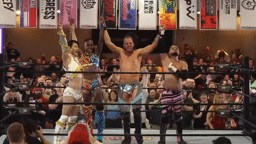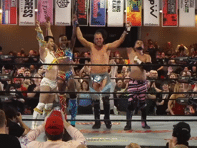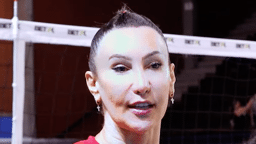To understand how meaningless the NCAA's announcement is this week that it will consider non-discrimination practices when selecting future tournament sites, you only have to take a look at the International Olympic Committee.
In late 2014, the IOC announced it was adding sexual orientation to its Olympic Charter and making LGBT protections a part of its decision-making process in site selection. Activists lauded the IOC for embracing diversity and protecting LGBT athletes.
Months later, the IOC selected Beijing, China, to host the 2022 Winter Olympics. China has zero anti-discrimination policies for LGBT people. Same-sex marriage is illegal there; In fact, there is no legal recognition of same-sex couples at all. LGBT people have no access to surrogacy or IVF in China, and same-sex couples cannot jointly adopt.
The IOC couldn't follow the policy it had just adopted just a few months earlier. All their big announcement did in late 2014 was quiet some LGBT advocates who bought their meaningless PR move.
The NCAA must have been watching. This week it announced that the Board of Governors has made LGBT protections part of the decision-making process for future tournament sites. Various advocates are already praising the NCAA for the move.
This was nothing but a bait-and-switch.
The language the NCAA used to describe the policy on its own Web site couldn't be weaker if Ted Cruz himself had written it:
"A new requirement for sites hosting or bidding on NCAA events in all divisions demonstrate how they will provide an environment that is safe, healthy, and free of discrimination, plus safeguards the dignity of everyone involved in the event."
The NCAA has not made the specific language of the resolution available and did not respond to several requests.
From the NCAA’s own language it seems sites in North Carolina would still be able to bid for and win the right to host future NCAA tournament games with this new policy. Just compare the NCAA’s policy statement above with the statement the Charlotte Hornets made after North Carolina passed its anti-LGBT law:
"As has been the case since the building opened, we will continue to ensure that all fans, players and employees feel welcome while at work or attending NBA games and events at Time Warner Cable Arena."
Management of an arena or stadium can seemingly lay out some inclusion policies, create a unisex bathroom and we're good to go. It doesn't matter that the LGBT student-athletes, coaches and fans across the state are subjected to discrimination; Remember, the policy says the "site" simply has to "demonstrate" how it will be inclusive.
 Must Reads
Must Reads 
 Must Reads
Must Reads 
The Board of Governors says the NCAA national office needs to "finalize details" of the policy. The national office will have to make crystal clear 1) if non-discrimination laws must exist in the host city, and 2) what exactly the language of that law should look like. Will they go that far? It would be unprecedented for them.
This isn't cynicism, this is the reality of what they've described about the policy on their own site. The NCAA's move is designed to take heat off of them and the State of North Carolina, not fix the situation. The NCAA isn't moving postseason matches out of the Tar Heel State, which is slated to host about 20 events over the course of the next few years including men's Division I basketball tournament games in 2017 and 2018.
The Univ. of North Carolina system, whose president has ordered each school to discriminate against transgender students, are still in the NCAA.
In addition to following the IOC's lead, the NCAA has taken a page from North Carolina Gov. Pat McCrory, who tried to quiet detractors with a weak "patch" for his state's discriminatory law instead of actually fixing (through repeal) the law. Thankfully people like Bryant Gumbel and NASCAR head Brian France have seen through the governor's very political move. It's heartening to see long-time LGBT sports activists like Pat Griffin and Chris Mosier are not letting the NCAA off the hook with this move.
Put North Carolina on hold for a minute. The NCAA has signed a deal to host the College World Series in Omaha, Neb., until 2035. According to the scope of the new policy, Nebraska could pass a law identical to that of North Carolina and the NCAA won’t do a thing about the World Series for another 20 years because it’s not bidding to host. Currently Nebraska has no discrimination protection for LGBT people, just last month rejecting a bill that would have offered employment protection.
While the city of Omaha protects LGBT residents from discrimination, a North Carolina-like state law would undo that. The state senate's recent rejection of employment protection gives a blueprint for where they are headed next.
The women's and men's Final Four locations are set through 2020 and 2021 in states like Texas, Georgia and Arizona, some of which have already had pro-discrimination laws pass the state legislature. Just like the NCAA would not move this year's men's Final Four out of Houston, they would follow the same path here for the next five years.
That's why this move is so troublesome. The NCAA will do nothing to protect LGBT student-athletes and coaches from discrimination next year or the year after — or even into 2035 — when tournament locations are already set.
"The NCAA should reconsider current tournament sites over the next three years," Campus Pride executive director Shane Windmeyer told me. His organization has been at the forefront of pushing the NCAA to take action against the recent empowering of religious anti-LGBT campuses. "Who knows where we'll be with these issues in 2019. They are very late to this party and seem to be all about kicking the can down the road."
LGBT advocates have been pushing the NCAA for two things: 1) Take action against members with discriminatory anti-LGBT policies usually masked as pro-Christian rules; 2) Move upcoming tournament games out of North Carolina, Mississippi and other locations with discriminatory policies to protect LGBT athletes and coaches.
The people who best understand the struggles of LGBT people in and outside of sports, the people working with LGBT athletes and coaches on a daily basis, have asked for these two main issues to be addressed because of their immediate impact.
Instead the NCAA gave us something with no effect for years, leaving LGBT people open to discrimination at NCAA events until then.
Bait…and switch.




